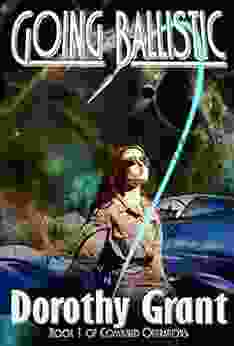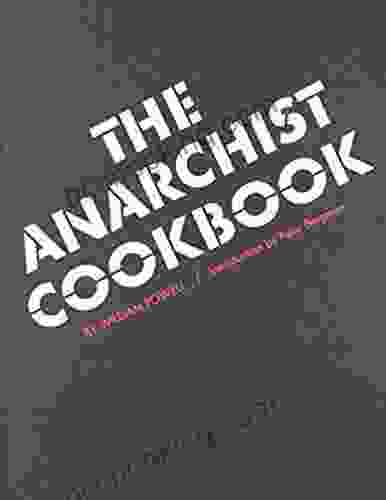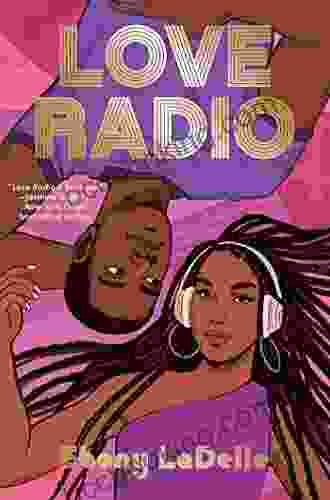Essays On The Personal Voice And Disciplinary Politics Rubicon: An In-Depth Exploration of Identity, Authorship, and Institutional Power

: Navigating the Intersections of Identity, Scholarship, and Voice
![]()
In the realm of academia, where rigorous research and objective analysis often take center stage, the personal voice has long been relegated to the margins. However, in recent years, scholars have begun to challenge this dichotomy, recognizing the powerful role that personal experiences, identities, and perspectives can play in shaping both the research process and its outcomes.
4.9 out of 5
| Language | : | English |
| File size | : | 2695 KB |
| Text-to-Speech | : | Enabled |
| Screen Reader | : | Supported |
| Enhanced typesetting | : | Enabled |
| Word Wise | : | Enabled |
| Print length | : | 183 pages |
"Essays On The Personal Voice And Disciplinary Politics Rubicon," edited by Dominique Hecq and Josephine Beoku-Betts, is a groundbreaking collection that delves into this complex and multifaceted relationship. Through a series of incisive and thought-provoking essays, the contributors explore the ways in which personal narratives, marginalized voices, and disciplinary boundaries intersect and influence the production and dissemination of knowledge.
Unveiling the Personal Voice: Authenticity, Narrative, and Subjectivity
The book's opening section, "Unveiling the Personal Voice," examines the significance of personal experiences and perspectives in shaping research and writing. Contributors argue that embracing the personal voice allows for a more nuanced and authentic representation of the research process, acknowledging the subjective and situated nature of knowledge production.
Deborah Britzman explores the role of narrative in constructing and communicating research findings, arguing that stories and personal anecdotes can convey insights and complexities that traditional analytical writing often fails to capture. In her essay, "The Question of Narrative," she challenges the notion of objectivity in research, asserting that personal narratives can provide a valuable lens through which to understand and interpret social phenomena.
Similarly, Shirley R. Steinberg's essay, "Writing as a Body," delves into the embodied experiences of researchers, particularly those who identify as women or members of marginalized groups. She argues that writing is not merely a cognitive activity but also a physical and emotional process that is shaped by our bodies and identities. By acknowledging and embracing these embodied experiences, researchers can produce scholarship that is more inclusive and representative of diverse perspectives.
Challenging Disciplinary Boundaries: Crossing BFree Downloads, Embracing Hybridity
The second section of the book, "Challenging Disciplinary Boundaries," investigates the ways in which personal experiences and identities can both challenge and contribute to the boundaries of academic disciplines. Contributors argue that crossing disciplinary bFree Downloads can lead to innovative research approaches and more inclusive knowledge production.
In her essay, "The Interdisciplinary Rhizome: A Metaphor for Writing and Knowing," Donna Haraway proposes a non-hierarchical and interconnected model for knowledge production that draws upon diverse disciplines and perspectives. She argues that this rhizomatic approach allows for more fluid and creative ways of knowing and writing, challenging the traditional boundaries of academic disciplines.
Likewise, Michelle Fine's essay, "Reconsidering Discipline Through the Lens of Autobiography," examines the autobiographical writings of scholars who have transgressed disciplinary boundaries. She argues that these narratives provide insights into the challenges and opportunities of interdisciplinary work, as well as the ways in which personal experiences can inform and shape research across disciplines.
Navigating the Politics of Disciplinarity: Power, Privilege, and Inclusion
The final section of the book, "Navigating the Politics of Disciplinarity," explores the complex interplay between personal voices, disciplinary politics, and the distribution of power and privilege within academia. Contributors argue that acknowledging and addressing these power dynamics is essential for creating more inclusive and equitable research environments.
In her essay, "White Privilege: Cultural Capital, Language, and Value," Marilyn Strathern examines the ways in which white privilege manifests itself in academia, particularly in the valuation of certain languages and cultural practices over others. She argues that recognizing and challenging these power dynamics is crucial for fostering a more equitable and inclusive academic environment.
Similarly, Christina E. Villarreal's essay, "Speaking from the Margins: The Politics of Identity in Disciplinary Knowledge Production," explores the challenges faced by scholars from marginalized communities in academia. She argues that the personal experiences and perspectives of these scholars are often devalued or dismissed, leading to a skewed and incomplete representation of knowledge. By centering the voices of marginalized scholars, we can disrupt existing power dynamics and create a more inclusive and representative academic landscape.
: Redefining Knowledge Production through the Personal Voice
"Essays On The Personal Voice And Disciplinary Politics Rubicon" is a timely and provocative collection that challenges traditional notions of academic writing and knowledge production. By bringing together a diverse range of perspectives from across disciplines, the contributors offer a nuanced and comprehensive exploration of the role that personal experiences, identities, and disciplinary boundaries play in shaping research.
The book is an essential read for scholars, researchers, and students who are interested in redefining the boundaries of academic writing and creating a more inclusive and equitable research environment. It is a powerful reminder that the personal voice is not only legitimate but also an essential element of rigorous and meaningful scholarship.
As Dominique Hecq and Josephine Beoku-Betts conclude in their , "The personal voice is not a threat to the academy. It is, rather, a powerful tool for understanding the world around us and for creating a more just and equitable society."
4.9 out of 5
| Language | : | English |
| File size | : | 2695 KB |
| Text-to-Speech | : | Enabled |
| Screen Reader | : | Supported |
| Enhanced typesetting | : | Enabled |
| Word Wise | : | Enabled |
| Print length | : | 183 pages |
Do you want to contribute by writing guest posts on this blog?
Please contact us and send us a resume of previous articles that you have written.
 Book
Book Novel
Novel Page
Page Chapter
Chapter Text
Text Story
Story Genre
Genre Reader
Reader Library
Library Paperback
Paperback E-book
E-book Magazine
Magazine Newspaper
Newspaper Paragraph
Paragraph Sentence
Sentence Bookmark
Bookmark Shelf
Shelf Glossary
Glossary Bibliography
Bibliography Foreword
Foreword Preface
Preface Synopsis
Synopsis Annotation
Annotation Footnote
Footnote Manuscript
Manuscript Scroll
Scroll Codex
Codex Tome
Tome Bestseller
Bestseller Classics
Classics Library card
Library card Narrative
Narrative Biography
Biography Autobiography
Autobiography Memoir
Memoir Reference
Reference Encyclopedia
Encyclopedia Stephen Rosario Pisani
Stephen Rosario Pisani Steve Wexler
Steve Wexler Susan Mcelroy Montanari
Susan Mcelroy Montanari Rina Kent
Rina Kent Dave Bosanko
Dave Bosanko Thomas Herold
Thomas Herold S E Smith
S E Smith Tim Burford
Tim Burford Judy Corry
Judy Corry The Arbinger Institute
The Arbinger Institute Robert Gerwarth
Robert Gerwarth Lola Shoneyin
Lola Shoneyin Kindle Edition
Kindle Edition Stuart Elliot
Stuart Elliot Wes Mcdowell
Wes Mcdowell Terry Tempest Williams
Terry Tempest Williams Sir John Whitmore
Sir John Whitmore Taiwo Oduwoga
Taiwo Oduwoga Victoria Schwab
Victoria Schwab Wj Scott
Wj Scott
Light bulbAdvertise smarter! Our strategic ad space ensures maximum exposure. Reserve your spot today!

 Harrison BlairUnlock the Treasures of Art History: Delve into "Lives of the Most Eminent...
Harrison BlairUnlock the Treasures of Art History: Delve into "Lives of the Most Eminent... Gerald BellFollow ·5k
Gerald BellFollow ·5k Eric NelsonFollow ·8.7k
Eric NelsonFollow ·8.7k Leon FosterFollow ·6.9k
Leon FosterFollow ·6.9k Reginald CoxFollow ·19.4k
Reginald CoxFollow ·19.4k Dillon HayesFollow ·14.6k
Dillon HayesFollow ·14.6k Jerome PowellFollow ·16.4k
Jerome PowellFollow ·16.4k Tony CarterFollow ·5.6k
Tony CarterFollow ·5.6k Timothy WardFollow ·14.6k
Timothy WardFollow ·14.6k

 Amir Simmons
Amir SimmonsImmerse Yourself in the Enchanting Realm of Nora Roberts'...
Prepare to be captivated by...

 Dan Henderson
Dan HendersonUnleash the Explosive Action of Going Ballistic Combined...
Prepare for an...

 Jeffery Bell
Jeffery BellDiscover the Controversial and Captivating "The Anarchist...
In the realm of literature, there are...

 Ryan Foster
Ryan FosterUnveiling Lincoln's Eloquence: How His Greatest Speeches...
In the annals of American...

 Jaime Mitchell
Jaime MitchellLove Radio Vinny Berry: A Journey of Heartbreak, Healing,...
Vinny Berry's...
4.9 out of 5
| Language | : | English |
| File size | : | 2695 KB |
| Text-to-Speech | : | Enabled |
| Screen Reader | : | Supported |
| Enhanced typesetting | : | Enabled |
| Word Wise | : | Enabled |
| Print length | : | 183 pages |











